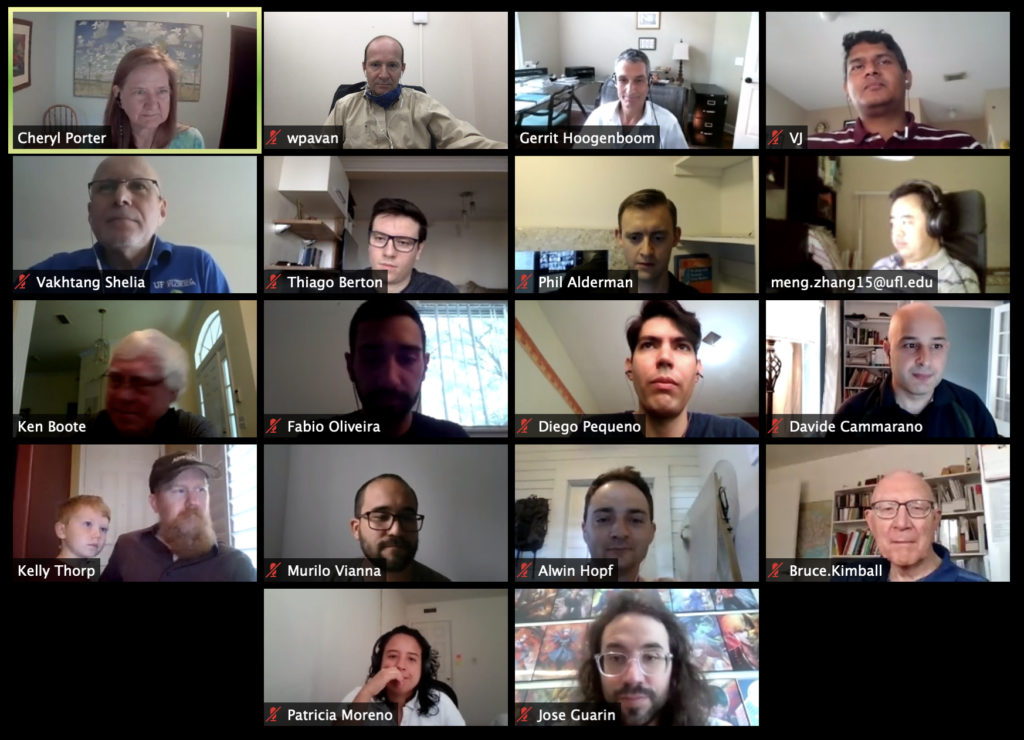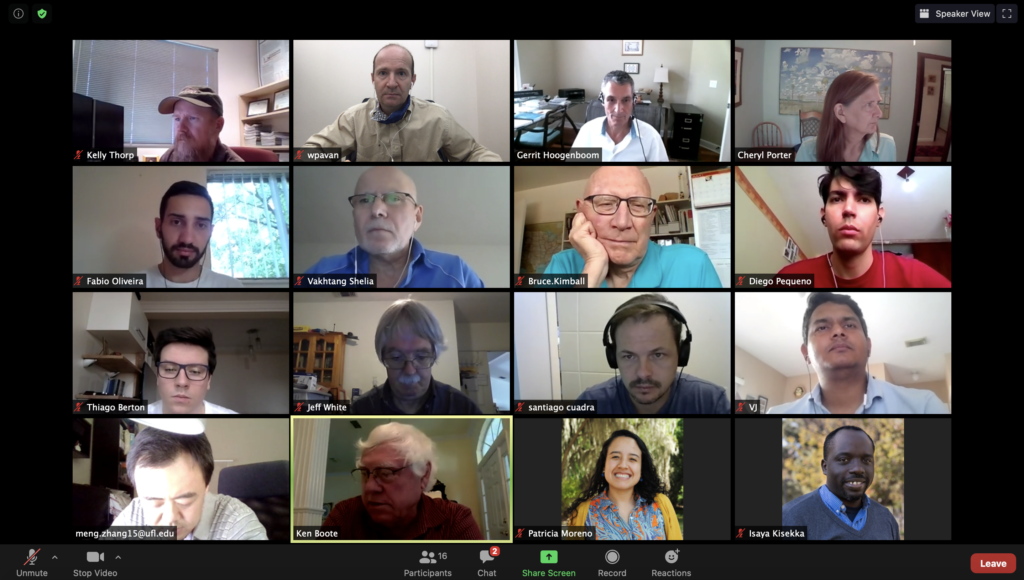The 13th DSSAT Development Sprint was held from July 20-24, 2020 as a Virtual Meeting due to continuing Covid-19 Pandemic. The DSSAT Development Sprint was hosted by the Institute for Sustainable Food Systems and the Department of Agricultural & Biological Engineering of the University of Florida. One of the main goals of the DSSAT Development Sprint is to improve the science of the Cropping System Model (CSM) and the tools, utilities and application programs of DSSAT. Significant progress was made in various components of DSSAT and CSM, including salinity response, soil temperature updates, a new ET approach based on the American Society of Civil Engineers, an energy balance routine for detailed transpiration simulation and canopy temperature simulation , ozone response for wheat, generic and more flexible fertilizer inputs, multi-harvest option of fruits and vegetables, pest and disease interaction for wheat, 2-dimensional simulation of the soil water balance, and the addition of new crop modules for tef, chia, quinoa, and strawberry. Progress is also being made towards the development of a more flexible DSSAT shell for release as DSSAT Version 4.8 in early 2021. The updated source code for CSM can be obtained from the the GitHub repository at https://github.com/DSSAT/dssat-csm-os. The code is licensed under the BSD 3-Clause “New” or “Revised” license.
This “vritual” DSSAT Development Sprint was attended by 23 scientists from 12 universities and institutes, representing the USA, Brazil, Mexico, Nepal, the United Kingdom, and Germany. The DSSAT Development Sprints are open to anyone interested in programming, but note that these are not advanced training workshops. The next DSSAT Development Sprint is scheduled from January 11-15, 2021 and will be held at the University of Florida.


